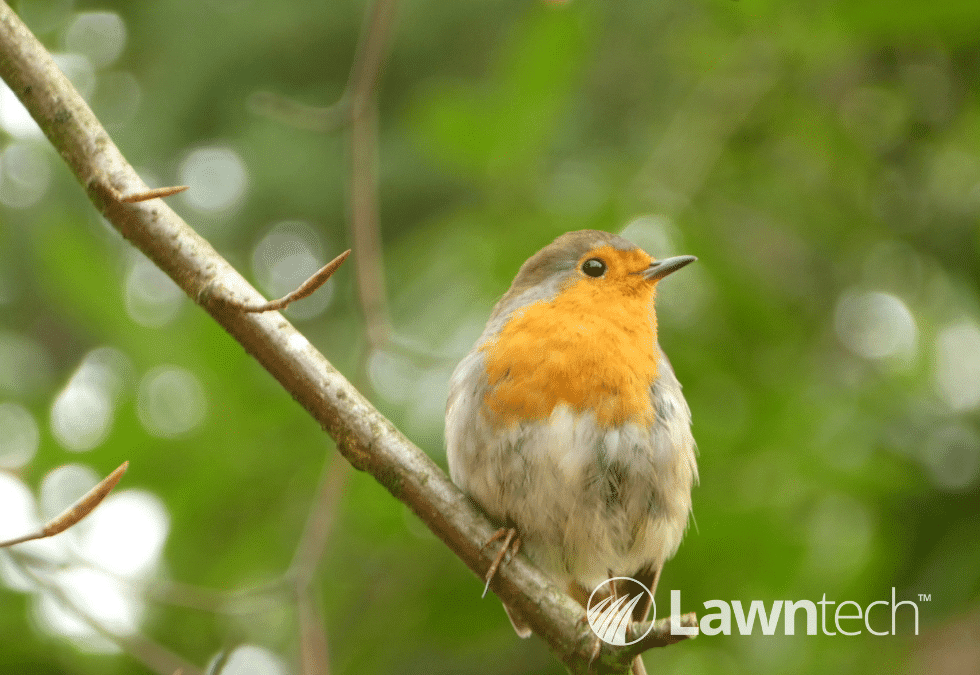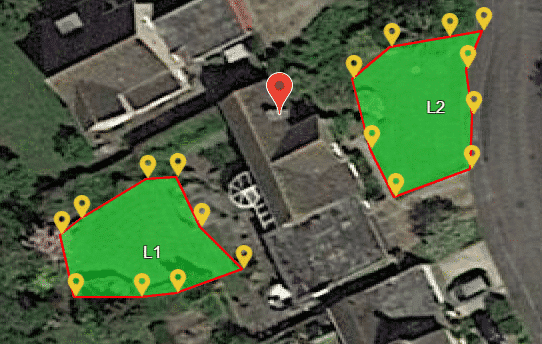At Lawntech, we love to do our part to support British Wildlife where we can and we know that winter is that time of year we find ourselves venturing less outdoors and relishing in the warmth of our homes instead. The darker, shorter days especially make our homes even more enticing during winter. But whilst us humans are wrapped up warm inside, there’s a world of wildlife out there looking for ways to sustain their food source and comforts during the cold, winter temperatures. So, how can you welcome wildlife into your garden this winter? We have some useful ideas to get you started.
Create a Wildlife Haven for Winter
Winter poses a challenging time for many of our native species but your garden can still be a great sanctuary for these creatures this time of year, helping our wildlife to thrive these harsher months. When the temperatures drop; creating a small, comfortable habitat for our wildlife in an undisturbed corner of your garden will help animals seek refuge.
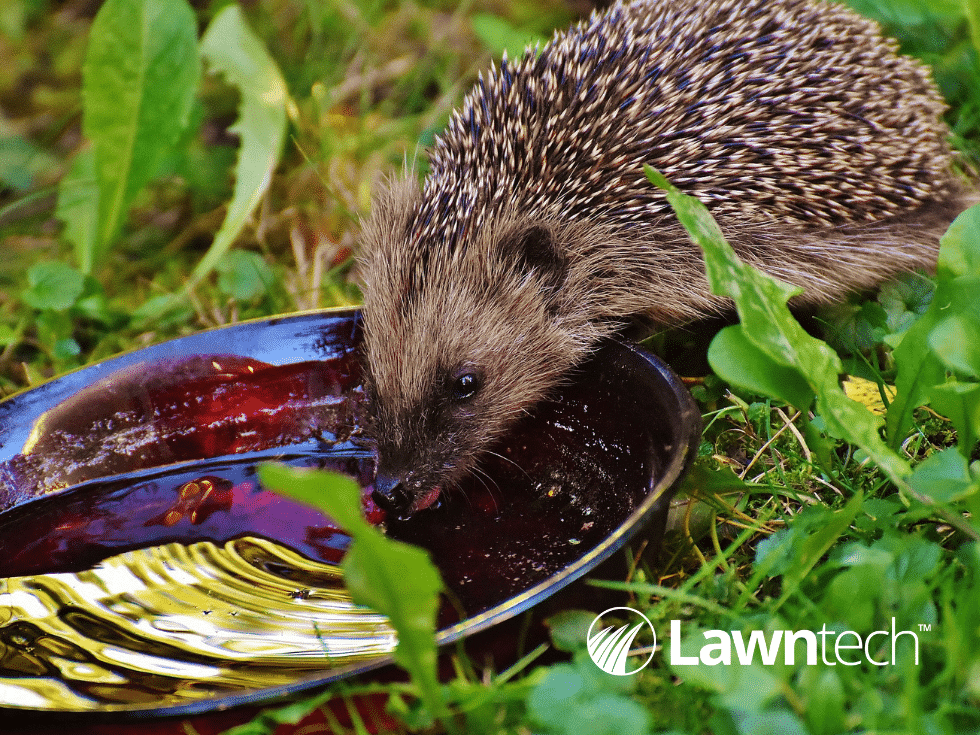
Help our Hedgehogs and create a wildlife haven that will help them stay hydrated and warm during these harsher months.
Woodpiles are the ideal home for Hedgehogs during winter. Collecting piles of logs and placing them in a quiet, secluded part of your garden such as behind your garden shed, will create a safe space for our spiky friends to keep warm.
Insect or bug hotels are a great retreat for many minibeasts including ladybirds and lacewings. These create a snug and cosy corner for these little creatures to shelter from the cold weathers and can bring a fun, creative feature to your garden too. These can be easily made using upcycled materials we may already find in our gardens such as leaves, sticks and old pipes or roof tiles. An Eco-friendly escape for our wildlife friends through winter!
Feeding Wildlife through Winter
The colder months certainly make finding food a harder task for wildlife during winter so providing a small food source from your garden will certainly give our little friends a helping hand!
Particularly, whilst insects scurry away from the cold, garden birds will notice a fall in their natural food source.
Bird feeders filled with a high-quality seed and nut mix will supply these friendly visitors with a vital source of energy. Foods with a high fat content such as fat balls and cakes will also help keep them warm. These can be home-made too, using cheese, suet, and dry porridge oats. A super simple indoor winter activity that you’ll not only have fun making but take comfort in knowing you’ll be providing a meaningful meal to these small birds in the cold outdoors.
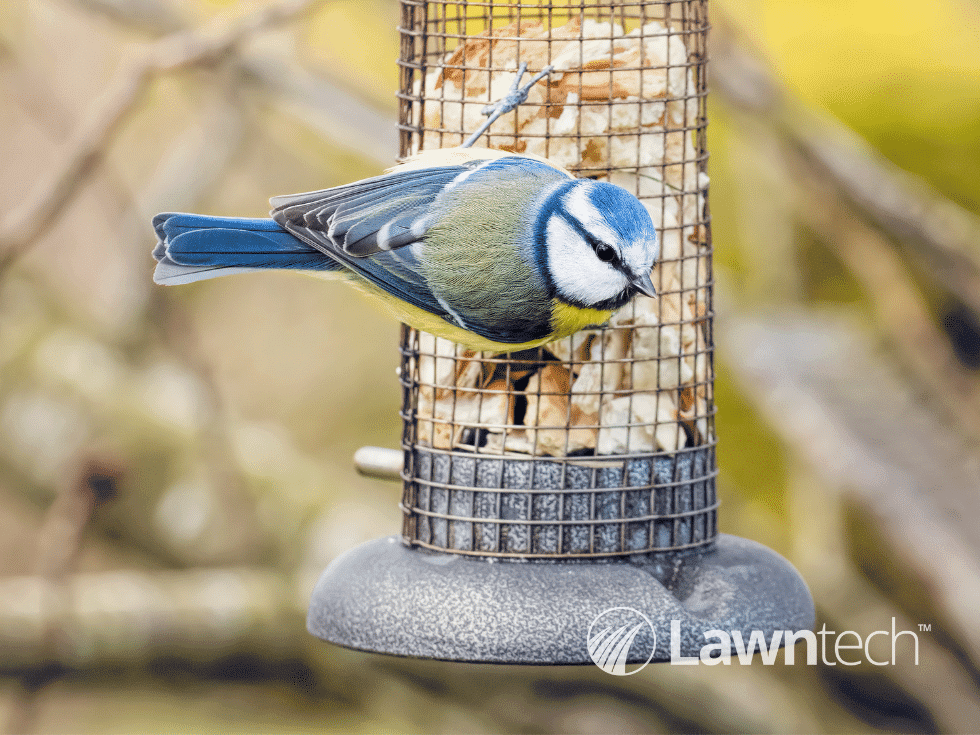
As insects seek shelter from the cold season, for small birds, finding an alternative food source is vital.
A useful tip when setting up your bird-feeding station is to attach a catcher tray beneath your feeder. This will prevent any errant birdseed from being dropped to the ground, protecting your lawns from any unwanted germinations.
Fresh water will keep wildlife hydrated through winter. The frozen temperatures during winter make it difficult to find clean, fresh water this time of year. Providing fresh water in a shallow dish on the ground will benefit our British wildlife keeping them hydrated and clean.
Gardening for Wildlife in Winter
As we find ourselves using our garden space much less during winter, we use this time to tidy our gardens and pack up our tools in preparation for the cold, frosty months before Spring. For British wildlife however, winter is the best time to plant hedges, small trees and shrubs that will support our native species in the months ahead.
Planting hedges such as hawthorn and blackthorns and allowing holly and ivy to grow in your garden, not only provide cosy nesting places for small birds but also provide a natural source of winter food with bright, beautiful berries for our little friends to feast on.
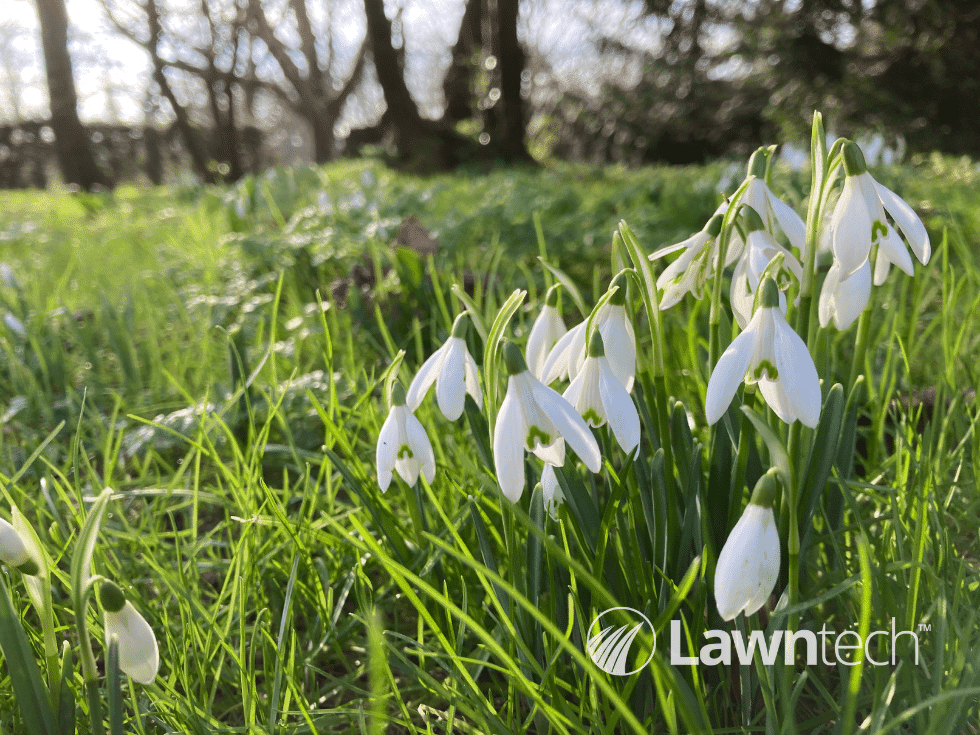
With benefits to our wildlife and beauty to your garden, set the scene with snowdrops this winter.
Honeysuckle, teasel, and snowdrops are also a wonderful addition to your garden in winter. The white flowers of snowdrops offer a vital food source for insects that emerge early in the year such as bees.
Together with nature, we can beat the ‘Winter Blues’
At a time of year that can be bleak for both people and wildlife, staying in touch with nature by bringing these additions to your garden can really have your outside space bustling with life, creating a garden scene that’s joyous and warming to us all throughout the colder season.

